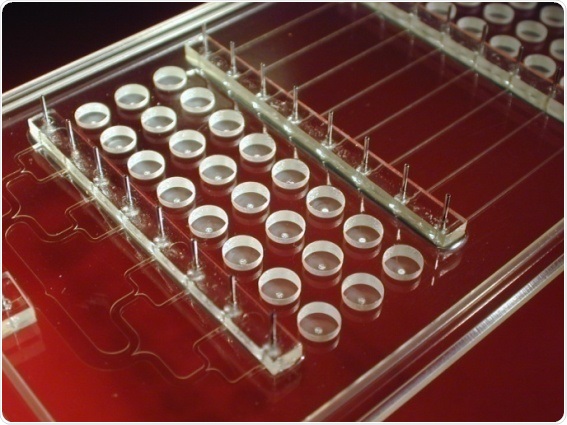Feb 10 2015
Epigem, a high-tech British micro engineering company, is supporting research into Multiple Sclerosis (MS) with a new PhD programme to create a novel drug screening platform. This will accelerate the production of MS models and pre-clinical drug development, in order to understand better the disease process and its periods of remission.
The PhD programme is currently being offered by Heriot-Watt University in Edinburgh. The programme will start in October 2015 and is sponsored by Medical Research Scotland. This is the latest project in the 20 year partnership between Epigem and Heriot-Watt University.
The drug screening platform will use human central nervous system cells and innovative bioengineering. This platform will culture human neurologically active cells in multi-functional microfluidic compartments where neuronal activity will be controlled and monitored for the first time.
MS is a debilitating neurological disease that affects approximately 127,000 people in the UK, with the cost of treatment ranging from £5,500 to £20,000 per year. This presents a significant challenge for health care providers.
Over time, the chronic condition results in patients presenting with many of the most common symptoms: problems with mobility and balance, blurring vision, muscle weakness and extreme tiredness. There is no cure for this disease and available treatments can only suppress the severity of relapses.
The programme of research will involve joint interdisciplinary efforts by Epigem and Heriot Watt’s School of Engineering and Physical Sciences.
Tim Ryan, Managing director of Epigem, explained, “Through the development of a novel microfluidic platform, this inter-disciplinary project will enable fundamental research into the causes and treatment of MS and extend the results to other central nervous system diseases.”
“We are really proud and excited to be involved in this project with the Heriot-Watt University. The research that will be carried out may make a major contribution to understanding MS and other diseases in more depth and we hope our 20 years of experience in micro engineering will increase the potential of success.”
Prof Rory Duncan, head of Institute of Biological Chemistry, Biophysics and Bioengineering said, “This is a fantastic example of cross-disciplinary collaboration and we are delighted to host another MRS scholar at Heriot-Watt University. It will be great to work alongside Epigem”.
Scott Johnstone Vice Chairperson, Medical Research Scotland, commented, “Medical Research Scotland funds only high quality research projects, which aim to improve the diagnosis, treatment or prevention of disease, including 14 PhD Studentships this coming year.

“A generous donation has allowed Medical Research Scotland to offer funding for several research projects specifically focused on making a positive scientific contribution to help understand and tackle the debilitating disease of MS. This significant funding award to Heriot-Watt University will ensure an excellent MS project is progressed. It will allow the university to appoint a first-class (PhD) student who will become highly specialised in MS, industry aware and ultimately be equipped to help make a positive contribution to the field, including in the development of innovative MS therapies.”
For more information, visit www.epigem.co.uk and www.eps.hw.ac.uk/research/phd/ib3.htm